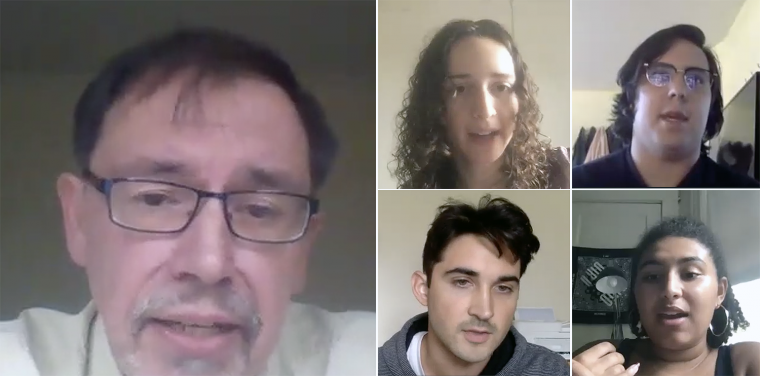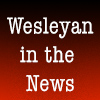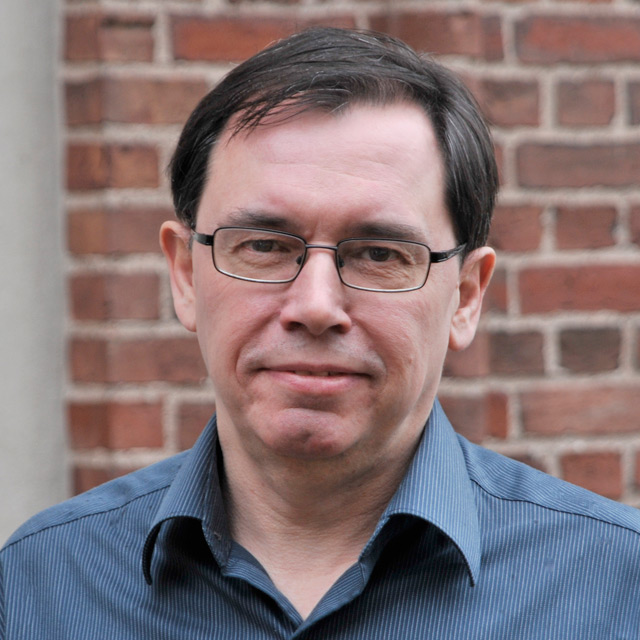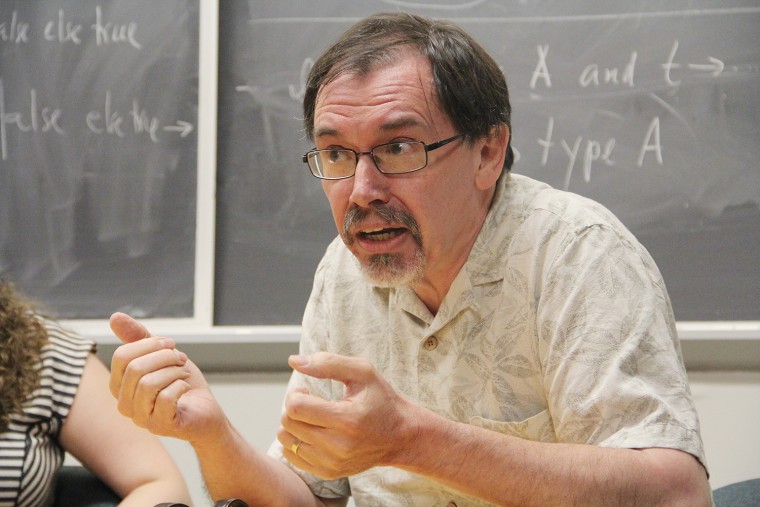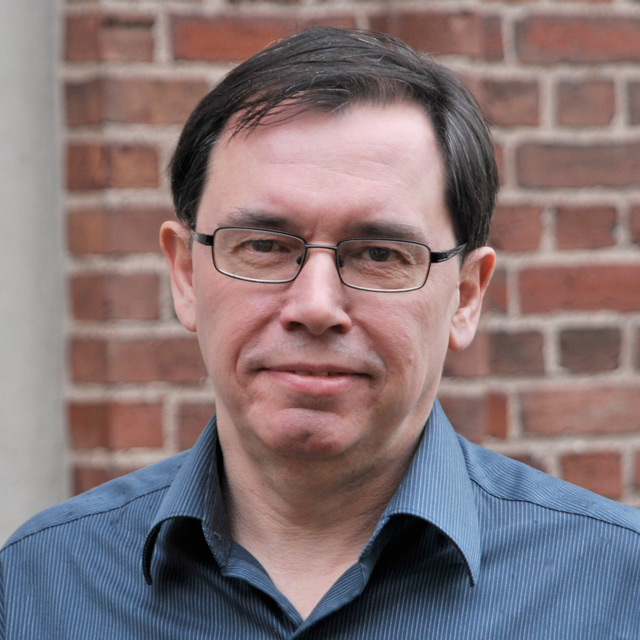Peter Rutland, Colin and Nancy Campbell Professor in Global Issues and Democratic Thought, professor of government, has recently authored and co-authored many scholarly articles and book chapters. His research focuses on contemporary Russian politics, the political economy, and nationalism. His works include: A chapter titled “Looking back at the Soviet economic experience,” published in 100 Years of Communist Experiments in June 2021. “Dead souls: Russia’s COVID Calamity,” published in Transitions Online in March 2021. “Workers Against the Workers’ State,” published by the NYU Jordan Center for the Advanced Study of Russia in February 2021. “Poverty, Politics and Pandemic: The Plague…
Peter Rutland, Colin and Nancy Campbell Professor in Global Issues and Democratic Thought and a professor of both government and Russian, East European, and Eurasian Studies, has recently authored and co-authored many scholarly articles and book chapters. His research focuses on contemporary Russian politics, the political economy, and nationalism. His articles include: “Transformation of nationalism and diaspora in the digital age,” published in Nations and Nationalism in December 2020. “Russia and ‘frozen conflicts’ in the post-soviet space,” published in Caucasus Survey, in April 2020. “Do Black Lives Matter in Russia?,” published in PONARS Eurasia policy memo in July 2020. (more…)
When the COVID-19 outbreak disrupted in-person classes last spring, several faculty found innovative and creative ways to adapt to online teaching and learning. In the second of a fall-semester series, we'll be highlighting ways faculty from various departments are coping with teaching during a pandemic, and showcase individual ways courses are thriving in an online or hybridized environment. In this issue, we spotlight Peter Rutland from the Government Department. Peter Rutland, the Colin and Nancy Campbell Professor in Global Issues and Democratic Thought, professor of government, is teaching GOVT 157: Democracy & Dictatorship and GOVT 278: Nationalism this fall. He's…
Wesleyan in the News Connecticut Public Radio: "The Struggle for Sleep: Why More School Districts Are Considering Later Starts" Speaking as both a scholar and a mother, Associate Professor of Psychology Anna Shusterman comments in this story on the movement to push schools in the state to start later. “People ask me, as a developmental psychologist, ‘Oh, we have this mental health crisis in the state, what are we going to do, what should we be funding, what kind of resources do we need to build in?’ And I just think it’s so silly when we have such a straightforward…
In this recurring feature in The Wesleyan Connection, we highlight some of the latest news stories about Wesleyan and our alumni. Wesleyan in the News 1. The Nation: "Edward Snowden Deserves to Be Tried by a Jury of His Peers, Just Like Everyone Else" In this op-ed, Associate Professor of Government Sonali Chakravarti argues against the Justice Department's decision to deny Edward Snowden's request for a jury trial. She contends that in Snowden's case, in which he is accused of leaking classified information from the National Security Administration in 2013, a jury trial "is not only a viable alternative to a hearing…
This year's Shasha Seminar for Human Concerns, “Understanding Russia: A Dramatic Return to the World Stage,” will be held Oct. 11–12. It begins on Friday with a keynote address by Andrew Meier ’85, a former Moscow correspondent with Time. On Saturday, a full day of panel discussions led by Wesleyan professors and alumni who are leaders in their field will be available to registrants. The Shasha Seminar, an educational forum for Wesleyan alumni, parents, and friends, explores issues of global concern in a small seminar environment. Endowed by James Shasha ’50, P’82, the Shasha Seminar for Human Concerns supports lifelong learning and encourages…
Wesleyan faculty frequently publish articles based on their scholarship in The Conversation US, a nonprofit news organization with the tagline, “Academic rigor, journalistic flair.” In a new article, Peter Rutland, the Colin and Nancy Campbell Professor in Global Issues and Democratic Thought, writes about the FIFA World Cup being hosted by Russia. Though Russia's team is not expected to perform very well, he writes, leader Vladimir Putin understands the power of sports to "foment feelings of national pride" and boost his own popularity among the Russian people. Rutland is also professor of government; professor of Russian, Eastern European, and Eurasian studies; tutor…
In this recurring feature in The Wesleyan Connection, we highlight some of the latest news stories about Wesleyan and our alumni. Recent Wesleyan News Rolling Stone: "Bethesda Founder Christopher Weaver on the Past, Present and Future of Video Games" Christopher Weaver MALS '75, CAS '76, the Distinguished Professor of Computational Media in the College of Integrative Sciences, is profiled. 2. Transitions Online: "The Search for a New World Order, Then and Now" Peter Rutland, the Colin and Nancy Campbell Professor in Global Issues and Democratic Thought, writes that a century after President Woodrow Wilson promulgated his "14 points" to guarantee world…
Peter Rutland, the Colin and Nancy Campbell Professor in Global Issues and Democratic Thought, recently spoke on a panel of political economy experts at The Gaidar Forum 2018, held at the Presidential Academy of Economics and Public Administration in Moscow. Russian Prime Minister Dmitry Medvedev gave the keynote address at the forum. "How can Russia get onto a more knowledge-intensive, non–resource-based economic sustainable growth path? How can it escape from the middle income trap?" asks Rutland in his talk. "You could look across the continent to China," which has been amazingly successful in recent years, he says. Russian companies do not invest at…
Peter Rutland, the Colin and Nancy Campbell Professor in Global Issues and Democratic Thought, is the author of an article, "Imagining Russia post-Putin" published by The Conversation. The article appeared in Raw Story, Houston Chronicle and San Francisco Chronicle, among other publications. Rutland writes that Vladamir Putin is almost sure to win re-election as president of Russia in the March 2018 election. The Russian Constitution requires him to step down after two consecutive terms, a problem Putin solved in 2008 when he moved sideways to prime minister as his protege took over as president. Putin returned to the presidency in 2012. (more…)
Peter Rutland, the Colin and Nancy Campbell Professor in Global Issues and Democratic Thought, was interviewed on BYUradio about the Olympics and nationalism. "The Olympics are practically built for indulging in what you might call 'good nationalism,' as opposed to the xenophobic kind," said host Julie Rose in the introduction. Yet this year's Olympic Games come at a time of fear of outsiders, both in the U.S. and abroad. They begin by discussing the difference between patriotism—which has more positive connotations—and nationalism, which implies dislike of foreigners. The key distinction, says Rutland, is about having respect for people from all countries.…
Peter Rutland, the Colin and Nancy Campbell Professor in Global Issues and Democratic Thought, has won an $85,000 grant from the Leverhulme Trust to serve as a visiting professor at the University of Manchester in the United Kingdom in 2016. There, he will be working on a research project titled, "Visualizing the Nation" with Manchester professors Vera Tolz and Stephen Hutchings. The Centre for Russian and Eurasian Studies at Manchester is a leading institution in the study of Russian television and mass media. Rutland is also professor of government, professor of Russian and Eastern European studies, tutor in the College…



